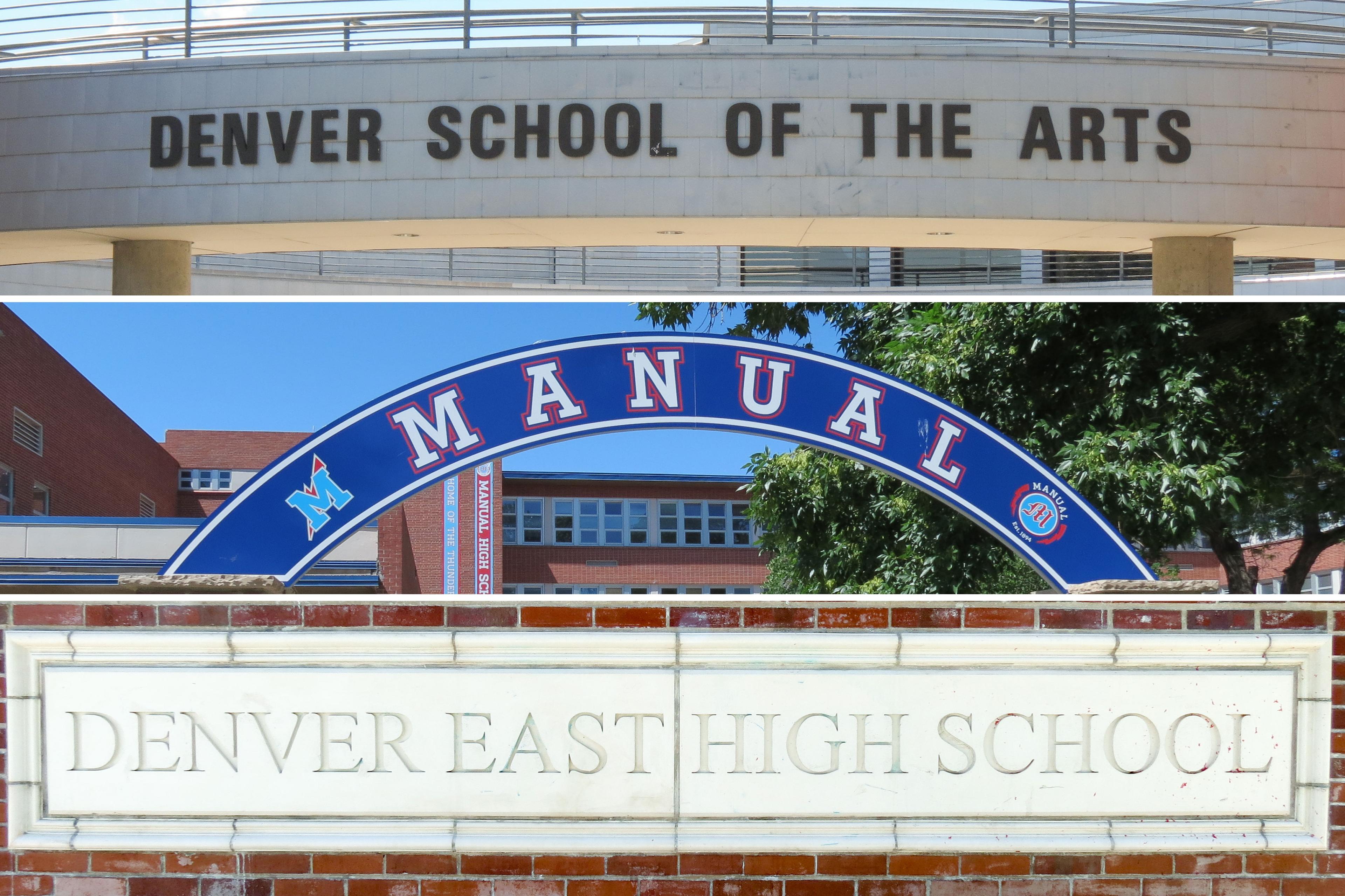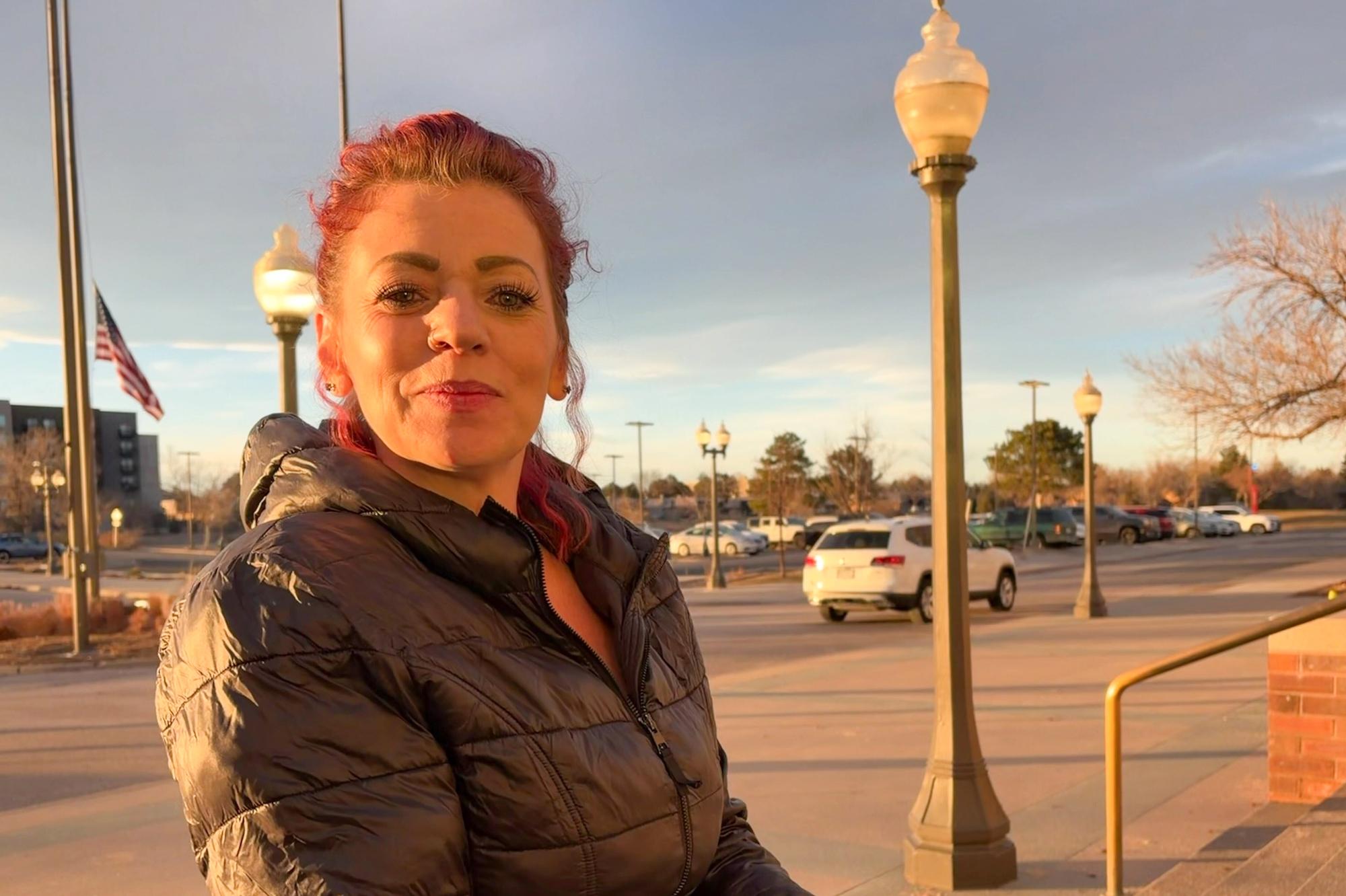

When a student claims a teacher is harassing them or when a teacher makes an allegation against a principal, the Denver Public School district has a policy about what goes into the case. Formal reports. A review of allegations. An outcome.
Yet, how that process happens and what kind of investigation occurs varies wildly.
Several recent high profile investigations of impropriety each received different treatment because, according to the district, there is no rule about the kind of an investigation that’s required.
“What triggers an independent investigation versus what triggers an internal investigation?” asked school board member Angela Cobian.
Whether an investigation is conducted by school staff, a district investigator or an outside law firm is a case-by-case determination — again there is no set policy.
“We consider factors including the level of complexity, our internal capacity at that time and the risk of a conflict of interest,” Denver Public Schools said in a statement.
Manual High School
Principal Nick Dawkins resigned in March after complaints of a hostile work environment. Two noteworthy points: First, the Employers Council, an outside firm conducted the investigation. Second, the results of the investigation were not made public. That fueled anger and rumors among students, who were captured on Facebook chanting “We want Dawkins, we want Dawkins!” in the school’s rotunda.
Media investigations have dug up answers. Westword reported there were allegations the principal made inappropriate sexual and racial comments toward staff. A letter obtained by the education news site Chalkbeat found the investigation concluded Mr. Dawkins violated two board policies. One prohibiting discrimination and harassment based on a person’s race, gender, among other “protected classes.” The second policy violated is one that explains how principals must investigate complaints.
The district says an investigation like this is a personnel matter and the results can’t be shared publicly. Open records experts argue that official performance and disciplinary sanctions of public school teachers and principals are outside the scope of the “personnel files” exemption of the Colorado Open Records Act. They say even if some information may be withheld — what the Colorado Court of Appeals has denoted as “personal demographic information,” such as a home address — it doesn’t justify withholding the remainder of the public record.
In the past, the district has also released the results of other investigations, most notably in the investigation of East High School cheer coach Ozell Williams.
East High School
The investigation began with a video aired on 9News in August of 2017 that showed a cheer coach forcing girls into the splits as they scream out in pain.
“The report shows that [administrators] did not sufficiently address, share or report allegations of abuse and the contents of the videos,” said Superintendent Tom Boasberg at a news conference at the time. “They did not provide the necessary level of oversight or supervision of the coach especially as the concerns mounted.”
The month-long investigation was also done by an outside firm, in this case law firm Davis, Graham, and Stubbs. The coach was fired and Boasberg held administrators accountable. The principal retired and the athletic director resigned. Boasberg said the investigation showed the coach bullied girls and forced them to practice while injured.
“We must strive to ensure every single one of our students understands that neither they nor their classmates should ever be placed in a situation where they are suffering physical or emotional harm,” he said.
Denver School Of The Arts
Two other investigations were handled very differently than the events at either Manual or East High. The elite Denver School of the Arts looked into both its vaunted dance program and the vocal program. In 2017, students and parents in the dance and vocal programs filed formal complaints alleging that teachers bullied and intimidated students and forced them to practice or perform while sick or injured.
A CPR News investigation showed complaints that dated back to 1994. In response, Superintendent Tom Boasberg said complaints over the years didn’t rise to a level that required an investigation. He also trusts that DSA Principal William Kohut acted appropriately.
“[Kohut] did share concerns that were raised with folks at the district level and folks at the district level also looked into those concerns,” Boasberg said.
Those concerns are the four formal letters of complaint filed in June 2017 against two dance teachers. The complaints triggered an investigation, but not one done by an outside law firm. A district investigator instead reviewed the case. The two teachers later resigned. The findings were not made public and the district refused CPR’s open records request for a copy of the investigation.
In an email to one of the complainants, Principal Kohut said complainants will be told when the investigation concluded and that corrective action was applied. “You will need to be informed, by law, what that action is,” he wrote. None of the complainants were told if policies were broken. Some weren’t even told the investigation had concluded.
Four months later, more than 10 letters of complaint were filed against two teachers the vocal department.
CPR interviewed 30 current and former students and parents and reviewed 10 letters of complaint. They revealed allegations of improper teacher student interactions, racially insensitive comments, and allegations of harassment, discrimination, and retaliation against students with emotional and mental disabilities.
The complaints against the vocal teachers related to policies on harassment and discrimination enforced by federal civil rights law. Principal William Kohut chose to handle this investigation internally, with Assistant Principal Aspen Miles carrying out interviews.
After a weeks long investigation, both teachers were cleared and came back into the classroom — only to later be placed on leave again when new formal complaints surfaced.
University of Colorado Boulder Professor Elizabeth Meyer, recently conducted a study which revealed that school districts are underprepared for handling Title IX-related investigations. The law doesn’t require investigators handling harassment and discrimination cases have special training, but it’s strongly recommended they do by the Department of Education. DPS did not comment on the assistant principal’s level of training.
With the case of the vocal teachers, Meyers said it felt like “they should’ve maybe gone to that next level sooner. Since there were so many people involved and such severe allegations across a range of categories of harassment and discrimination.”
In the case of the second set of allegations, district investigators are taking the lead. Barbara O’Brien, vice-president of the Denver School Board has concerns with that.
“There never should be only an internal investigation. People are not good at investigating themselves, so I don’t know how this was allowed to happen,” said O’Brien, who wants to hear from an external and independent investigator on the matter.
Should A Public Incident Make The Difference?
Parents wonder why the East High investigation and the DSA cases were handled so differently. Superintendent Tom Boasberg said the East High case became public right from the start.
“It was a very public set of incidents,” Boasberg said. “There were concerns raised about who knew what, when, among the different people involved at both the school level and at the district level. And we felt it was very important in light of those facts to have an independent investigation and make public the facts of that investigation.”
CPR’s investigation of the allegations against the DSA teachers showed that Principal William Kohut knew about complaints against one of the vocal teachers in May 2017. An investigation began seven months later when several other families filed complaints. It is unclear when allegations of sexual harassment against a parent came to the district’s attention. Kohut received the letter from the parent in January 2017.
“As soon as you have noted that there has been a violation of school policy or federal law or state law, whatever, as soon as you have notice, you are responsible to notify and investigate and follow through,” said CU Boulder’s Elizabeth Meyer. “It doesn’t have to be through a formal complaint in writing. That parent’s verbal communication should have initiated a process where that principal began an investigation.”
Some board members, including O’Brien, wonder what is happening specifically at the high schools.
“We’ve had two problems at East, one at Manual, two at South, now one at Denver School of the Arts and sometimes it’s a culture that’s been allowed to fester, sometimes it’s principals who don’t even feel they have to report incidents so that we can make sure kids are being taken care of, parents are informed, the proper people are either re-trained or disciplined. I’m very concerned about why DPS has a culture in their high schools that is letting these problems come up over and over and over again.”
The results of the second investigation into complaints against two DSA vocal teachers are expected soon. It is not known if the results will be public.
Editor's Note: An earlier version of this story misidentified Denver School Board member Angela Cobian as Andrea Cobian. We regret the error.









